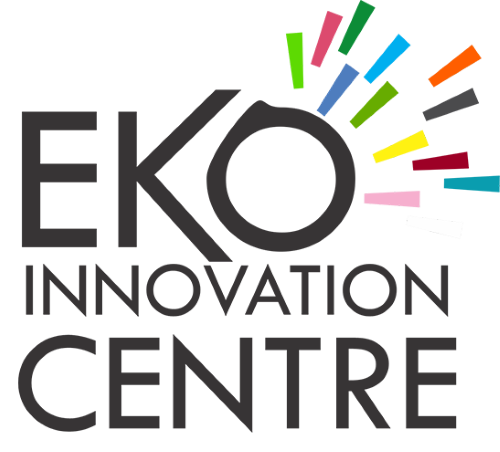The startup landscape is evolving at an unprecedented pace, shaped by technological breakthroughs, shifting consumer behaviors, and global economic changes. For startups, the ability to adapt quickly and scale efficiently is paramount. Understanding the emerging trends, navigating the challenges, and seizing new opportunities are essential for those looking to build sustainable and scalable ventures.
Emerging Trends for Startups
1. Digital Transformation and AI Integration
For startups, digital transformation isn’t a luxury—it’s a necessity. Integrating artificial intelligence (AI) and machine learning into operations can automate tasks, enhance customer engagement, and drive innovation. Research from McKinsey shows that companies leveraging AI experience a 20-30% increase in operational efficiency. Startups are increasingly using AI for everything from data analysis to personalized marketing, giving them a competitive edge in rapidly changing markets.
2. Sustainability and Social Impact
Today’s consumers expect more than just great products—they demand responsible business practices. Startups that embed sustainability and social impact into their core strategy are not only making a positive difference but also attracting a loyal customer base. Adopting eco-friendly practices, from green supply chains to sustainable production methods, can differentiate a startup in a crowded marketplace.
3. Remote Work and Global Collaboration
The shift to remote work has transformed how startups operate. With collaboration tools like Slack, Zoom, and Notion, startups can build highly effective, distributed teams. This flexibility allows startups to access global talent pools, reduce operational costs, and increase productivity, enabling them to scale faster and more efficiently.
4. The Rise of the Creator Economy
Platforms like Substack, Patreon, and YouTube have democratized access to the market, empowering individuals to launch startups with minimal overhead. This creator-driven economy is fostering a new breed of startups that rely on personal branding and community engagement to grow their businesses.
5. Blockchain and Decentralized Finance (DeFi)
Cryptocurrencies and blockchain technology are reshaping the financial landscape. Startups that harness blockchain for secure transactions, transparency, and decentralized business models are positioning themselves at the forefront of financial innovation. This trend not only opens up new markets but also builds trust with tech-savvy customers.
Challenges Facing Startups
1. Access to Capital
Despite increasing interest from investors, securing funding remains a significant challenge for many startups. Traditional venture capital can be unpredictable, and reliance on external funding may lead to dilution and loss of control. Startups must explore alternative funding avenues such as angel investors, crowdfunding, and revenue-based financing to maintain autonomy and drive growth.
2. Market Saturation and Intense Competition
The startup world is more crowded than ever. With low barriers to entry, many sectors are highly competitive. Startups need to differentiate themselves by innovating constantly, offering unique value propositions, and delivering exceptional customer experiences.
3. Regulatory and Compliance Hurdles
Navigating a complex web of regulations—from data protection laws like GDPR and CCPA to industry-specific compliance requirements—poses significant challenges. Startups must stay abreast of regulatory changes and design their business models to meet global compliance standards, which can be resource-intensive.
4. Technological Adaptation and Cybersecurity
While technology offers immense potential, it also brings risks. Startups face the constant challenge of staying current with rapid technological changes and safeguarding against cybersecurity threats. Investing in robust digital infrastructure and security measures is critical to protect customer data and maintain market trust.
Opportunities for Startups
1. Niche Market Development
Focusing on underserved or emerging niche markets offers startups the opportunity to build loyal customer bases and create tailored value propositions. By identifying specific pain points and addressing them effectively, startups can establish themselves as market leaders within their chosen niche.
2. Data-Driven Decision Making
Leveraging big data and predictive analytics allows startups to make informed decisions. Data-driven strategies help in optimizing product offerings, improving customer experiences, and identifying new growth opportunities. By tapping into analytics tools, startups can continuously refine their strategies and operations.
3. Strategic Partnerships and Collaborations
Forming alliances with established corporations or other startups can provide access to new markets, distribution channels, and technical expertise. These partnerships not only drive innovation but also accelerate growth by sharing resources and risks.
4. Leveraging No-Code and Low-Code Platforms
The emergence of no-code and low-code development tools has significantly lowered technical barriers. Startups can now develop and launch applications without extensive programming knowledge, allowing them to focus on creative problem-solving and rapid market entry.
Conclusion
The future of startups will be defined by those who can adapt to change, harness emerging technologies, and build resilient business models. Navigating this dynamic landscape requires not only identifying new trends and opportunities but also overcoming inherent challenges through smart strategies and agile execution.
At Eko Innovation Centre, we empower startups to thrive amid uncertainty. Our comprehensive programs provide access to strategic mentorship, funding opportunities, and cutting-edge innovation labs designed to support sustainable business growth. If you’re looking to build a scalable, future-proof startup, join our community of forward-thinking founders and industry leaders.
Together, we can turn challenges into opportunities and drive impactful growth in the evolving world of startups.
